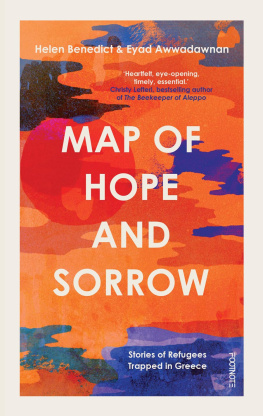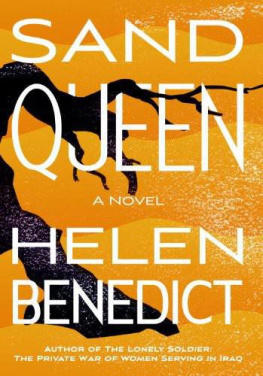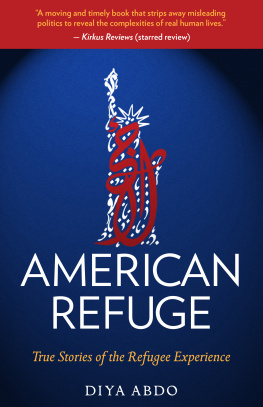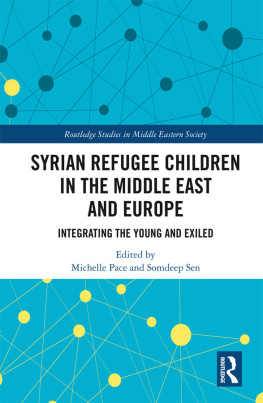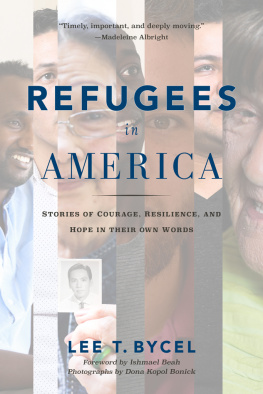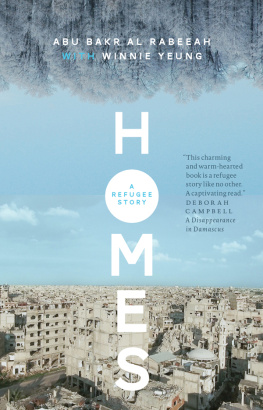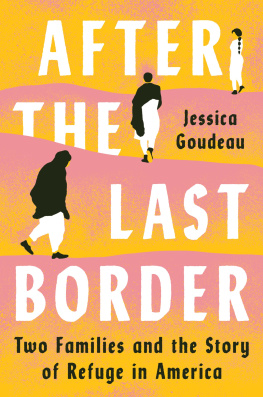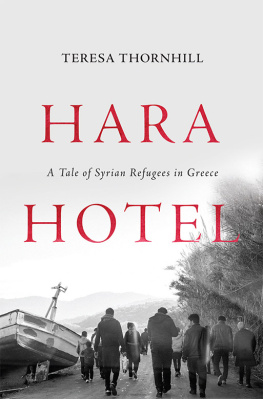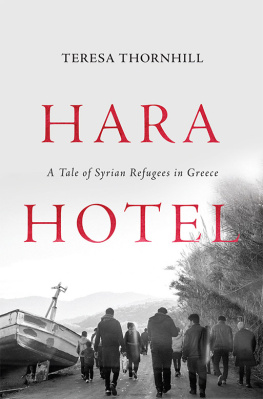
MAP OF HOPE AND SORROW
Heartfelt, eye-opening, timely, essential: these stories remind us of the plight of refugees, people just like us, who are desperate to build new lives for themselves and their loved ones. Christy Lefteri, author of The Beekeeper of Aleppo
Simple, powerful stories told in refugees own voices. I couldnt stop reading, hand to mouth, my chest tightening. A vital collaboration between two sharply observant writers who know how to get out of the way. Dina Nayeri, author of The Ungrateful Refugee
Harrowing, heartbreaking and deeply humane, Map of Hope and Sorrow amplifies the dreams and struggles of refugees who fled oppression only to find themselves trapped in another kind of cage. Their voices echoed in my brain long after the final page. Jessica Bruder, author of Nomadland
This is a treasure-trove of story, of heart, of humanitys failures and achievements. Kao Kalia Yang, author of The Latehomecomer
Never since World War II has the world seen so many refugees. They are women, the gay, the impoverished, the persecuted ... In this important book, Helen Benedict and Eyad Awwadawnan humanize them in the best way possible by letting them speak in their own voices. Map of Hope and Sorrow is darkly poetic, haunting vital. Dale Maharidge, author of And Their Children After Them, winner of the Pulitzer Prize for Non-Fiction
Helen Benedicts meticulously reported, beautifully written book, is timely and important ... No one knows this territory better than Benedict, and her pairing with Eyad Awwadawnan powerfully adds to a story at once compelling, poetic and necessary. Masha Hamilton, author of What Changes Everything and former US Embassy envoy to Afghanistan
Map of Hope and Sorrow is not only urgent, it is riveting ... These unflinching portraits of a pressing crisis remind us that we are never talking about borders or laws or news stories, but real people. Jessica Goudeau, author of After the Last Border
These heartfelt stories reveal the resilience of the human spirit as well as how the world has turned a blind eye to the suffering of not only Syrians, but other refugees, too. Fawaz Gerges, author of ISIS: A History
With more displaced people in the world since World War II, Map of Hope and Sorrow feels both timely and necessary. Judges citation, PEN Jean Stein Grant for Literary Oral History, 2021
Other books by Helen Benedict
Novels
Wolf Season
Sand Queen
The Edge of Eden
The Opposite of Love
The Sailors Wife
Bad Angel
A World Like This
Non-fiction
The Lonely Soldier: The Private War of Women Serving in Iraq
Virgin or Vamp: How the Press Covers Sex Crimes
Portraits in Print
Safe, Strong, and Streetwise
Recovery: How to Survive Sexual Assault
Play
The Lonely Soldier Monologues

First published in 2022 by
Footnote
www.footnotepress.com
Footnote Press Limited
4th Floor, Victoria House, Bloomsbury Square, London WC1B 4DA
Distributed by Bonnier Books UK
Owned by Bonnier Books
Sveavgen 56, Stockholm, Sweden
First printing
1 3 5 7 9 10 8 6 4 2
Helen Benedict and Eyad Awwadawnan
The right of Helen Benedict and Eyad Awwadawnan to be identified as the authors of this work has been asserted in accordance with the Copyright, Designs and Patents Act 1998.
Eyads preface is adapted from his article, I Have Become Lost Like My Homeland, published in Slate, August 2, 2018.
Evans chapter appeared in a different form as A Lonesome Journey to Freedom: The Hidden Struggles of LGBTQ Refugees, in Arrowsmith Journal, vol XVI, 2021.
A version of Mursals chapter appeared in The Nation on August 16, 2021.
Epigraph from Liberty Walks Naked, poems by Maram al-Masri, trans. by Theo Dorgan, Southword Editions, Cork, Ireland, 2017.
All rights reserved. No part of this publication may be reproduced, stored in a retrieval system, or transmitted in any form or by any means without the written permission of the publisher, nor be otherwise circulated in any form of binding or cover other than that in which it is published and without a similar condition being imposed on the subsequent purchaser.
A CIP catalogue record for this book is available
from the British Library and the Library of Congress.
ISBN (paperback): 9781804440018
ISBN (ebook): 9781804440025
Cover design by Anna Morrison
Maps by Isabelle Lewis
Typeset by Bonnier Books UK Limited
Printed and bound in Great Britain by
Clays Ltd, Elcograf S.p.A.
For Eyad, Hasan and Ali,
who began it all.
And for refugees everywhere and the people who welcome them
HB
To Helen, Noor and Ali Jan, and to all the souls who walk beside me on a journey none of us ever wanted to take
EA
I was walking, I was exhausted
I looked behind me
And saw I was dragging
A mountain of sorrow with my right hand,
A mountain of hope with my left.
Maram al-Masri, Liberty Walks Naked, 2017
T ABLE OF C ONTENTS
PREFACE: Lost, Like My Homeland,
by Eyad Awwadawnan
L OST , L IKE M Y H OMELAND
BY E YAD A WWADAWNAN
Samos, Greece, 2018
I am in my early twenties. I know these are supposed to be the most beautiful days of my life, when I should rise high, make something of myself. Yet I kill my days in sleep. Perhaps I sleep to become nothing, spending all my time in bed in this refugee camp in Samos, Greece, thinking about the journey that brought me here.
March 18, 2011: an unforgettable date. A demonstration against the government in the Syrian province of Daraa. Six demonstrators killed.
At first, people thought this was an isolated incident, that nobody else would die. Days passed and we hoped we could visit our graveyards with flowers instead of new bodies. But the flames of protest only grew and faces in my town became panicked. All over the country, more and more protests broke out, followed by government raids, arrests, executions. When those did not work, President Bashar al-Assads army and militias adopted a policy of siege, aerial bombardment and artillery. My town of Sabinah, which is just south of Damascus, tumbled into the third century: electricity had once lit its houses, but now its streets disappeared in the dark. Schools closed. Shops emptied of everything except schoolbooks. My familys weekly visits to relatives became memories. And even though I had just been accepted to Damascus University to study law, I could not go to classes. We had been put under house arrest.
My family is made up of eleven members: my father and his wife, my four brothers, three sisters and my grandmother. After my mother died in 1999, my grandmother took care of us, but by 2011 she was old and sick, and so, at the age of seventeen, I became the one who had to buy bread for the family. It would take me two hours because although the bakery was just a short distance from our home, it was next to an open square guarded by a military sniper. The government had taken control of the town by then and, to prevent rebellion, would shoot anyone out on the streets. I had to walk a long way around, hiding where the sniper couldnt see. I would often see a bullet dance in front of my eyes. Many of my friends fell for bread, one of them lying dead in the street for three days. Because of the sniper, people were afraid to rescue the body.
Next page
